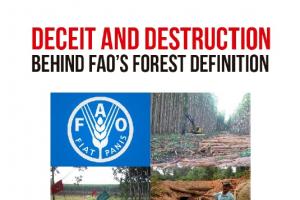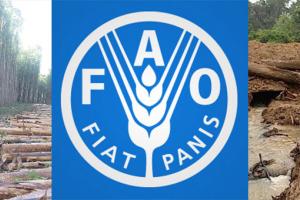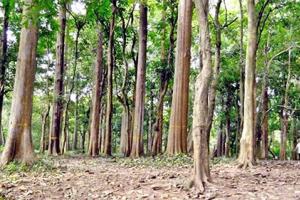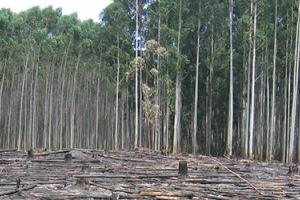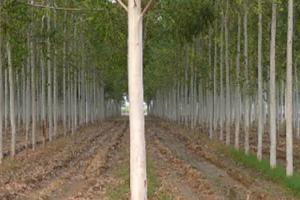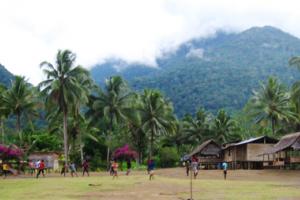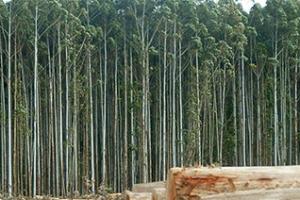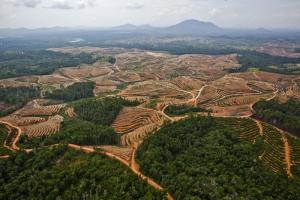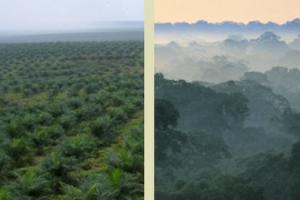Compilation of WRM Bulletin articles on the occasion of March 21st – UN International Day of Forests
21/03/2018
Compilation of WRM Bulletin articles on the occasion of March 21st UN International Day of Forests
For decades, the WRM has demanded that the United Nation’s Food and Agriculture Organization (FAO) urgently reviews its forest definition, which mainly benefits the interests of industrial monoculture tree plantations companies. FAO’s definition reduces a forest to any area covered by trees. In doing so, the FAO definition discards other life-forms as well as the biological, cyclical and cultural diversity that define a forest in its continuous interconnection with forest-dependent communities. FAO’s reductionist definition also allows the companies behind tens of millions of industrial fast-growing plantations to claim their monocultures are “planted forests”. Countries’ forest statistics thus count these industrial monocultures as “forests”, in spite of the well-documented social and environmental impacts such plantations have caused around the world. The United Nations (UN) declared March 21st as the International Day of Forests in 2013. At the WRM, we are taking this day as another opportunity to expose FAO’s misleading forest definition. Already in 2009, the WRM denounced in its Bulletin 141 that: “the definition of forests is not an academic or linguistic discussion: it is a political issue having serious social and environmental consequences at the ground level. Defining plantations as forests empowers the corporate sector - particularly plantation companies - and disempowers local communities opposing them to protect their livelihoods. The FAO continues playing this role by refusing to change its definition.” FAO’s definition remains the most widely used forest definition today. It serves as a guide for national forest definitions worldwide – as we denounced in an Open Letter in 2017. It’s also the reference in international forums, such as the UN climate negotiations. Albeit speaking of forests, the 2016 UN Paris Agreement promotes the expansion of monoculture tree plantations in various ways. Tree plantations are promoted as so-called carbon sinks, dubious reforestation or restoration programmes are launched and wood is advertised as an energy source to replace fossil fuels. Because the Paris Agreement adopts FAO’s forest definition, its promotion of industrial tree monocultures is taking place under the guise of the positive image of forests. As the WRM, together with La Via Campesina, Friends of the Earth International and Focus on the Global South, stated in an Open Letter to FAO in 2014, “The definition fails the at least 300 million women and men worldwide who, according to FAO, directly depend on forests for their livelihoods.” The FAO should take full responsibility for the strong influence its forest definition has over global economic, ecological and social policies. Here we present a compilation of WRM Bulletin articles from 2015 until 2018 and further information that addresses the different impacts and consequences of FAO’s forest definition. We hope this compilation serves to underscore once again the importance for a change of the FAO’s definition. Plantations are not forests! Download the compilation here
21 March 2018
Compilation of WRM Bulletin articles on the occasion of March 21st UN International Day of Forests
Bulletin articles
21 September 2017
For over 20 year now, certification schemes such as the Forest Stewardship Council (FSC) and the Roundtable on Sustainable Palm Oil (RSPO) (1) have helped plantation companies secure their profits and protect their reputation. How do they do that, when the impacts of large-scale industrial eucalyptus, pine, acacia and oil palm plantations are so obvious for all to see?
Bulletin articles
21 September 2017
Photo: Ecos Córdoba.
Located in the central region of Argentina, Cordoba is one of the five largest provinces in the country. Between 1904 and 2004, it lost 95 percent of its native forest, mainly as a result of the expansion of large-scale agriculture. Its annual deforestation rates are among the highest in the world, bringing serious consequences for the environment, health and food sovereignty of the population, according to researchers at the National University of Cordoba (1).
Bulletin articles
7 February 2017
Years before governments adopted the Paris Agreement, international initiatives promising millions of hectares of reforestation and forest restoration were launched, supposedly to benefit the environment and local communities. Yet, not one example of reforestation at scale exists that has achieved the promised benefits for communities and the environment.
Action alerts
21 September 2016
This open letter, calling on the FAO to revise its forest definition, will be sent to the FAO next March 21 when the International day of Forests is commemorated.
If your organization has not yet signed, we invite you to support the letter. Please send an email to fao2017@wrm.org.uy and include your organization’s name and country.
Signatures as of March 16, 2017
Multimedia
21 March 2016
On the 21st of March, International Day of the Forests, the FAO has launched another nice video. This year the video is about forests and water. Did you notice the video does not include any monoculture tree plantations, even though FAO considers them as forests? How would look such a video if coherent with FAO´s forest definition?
Action alerts
18 August 2015
At the UN's World Forestry Congress in Durban, South Africa, in September, policymakers, industry and others will debate the 'sustainable future' of forests and people. But there can be no sustainable future until the UN and governments accept that real forests have nothing in common with sterile industrial tree plantations.
The world’s forests are being destroyed at a breathtaking pace.
